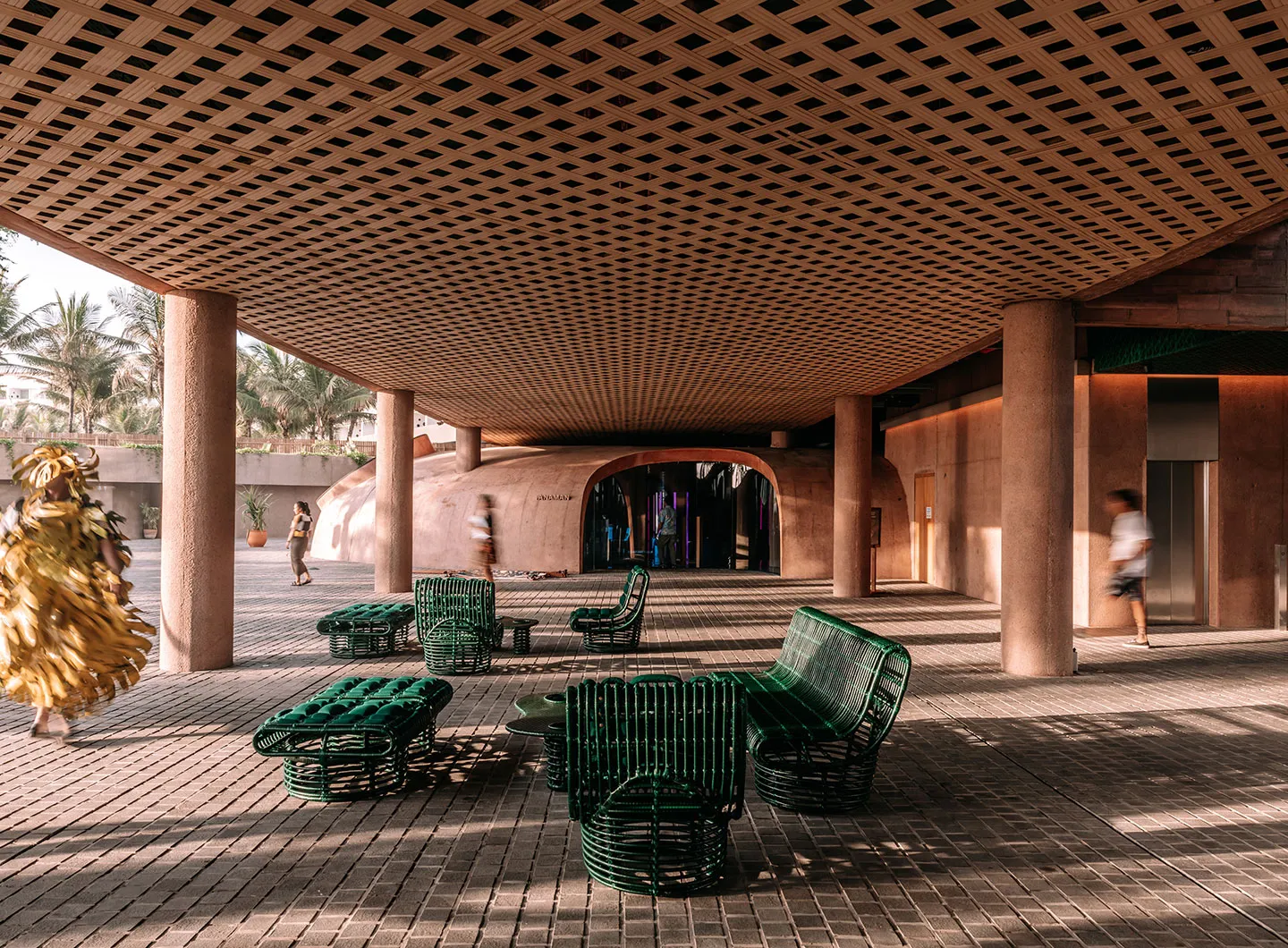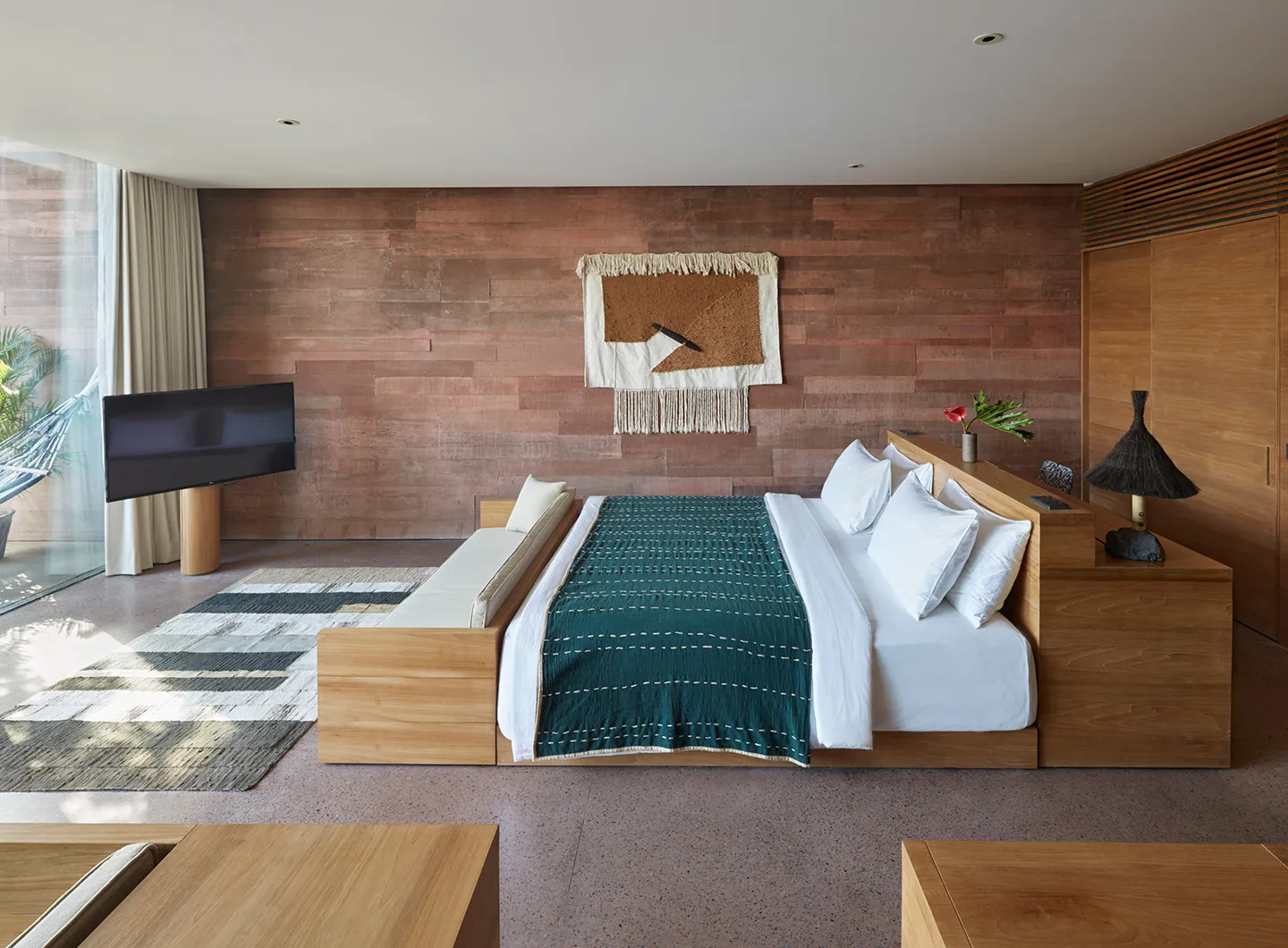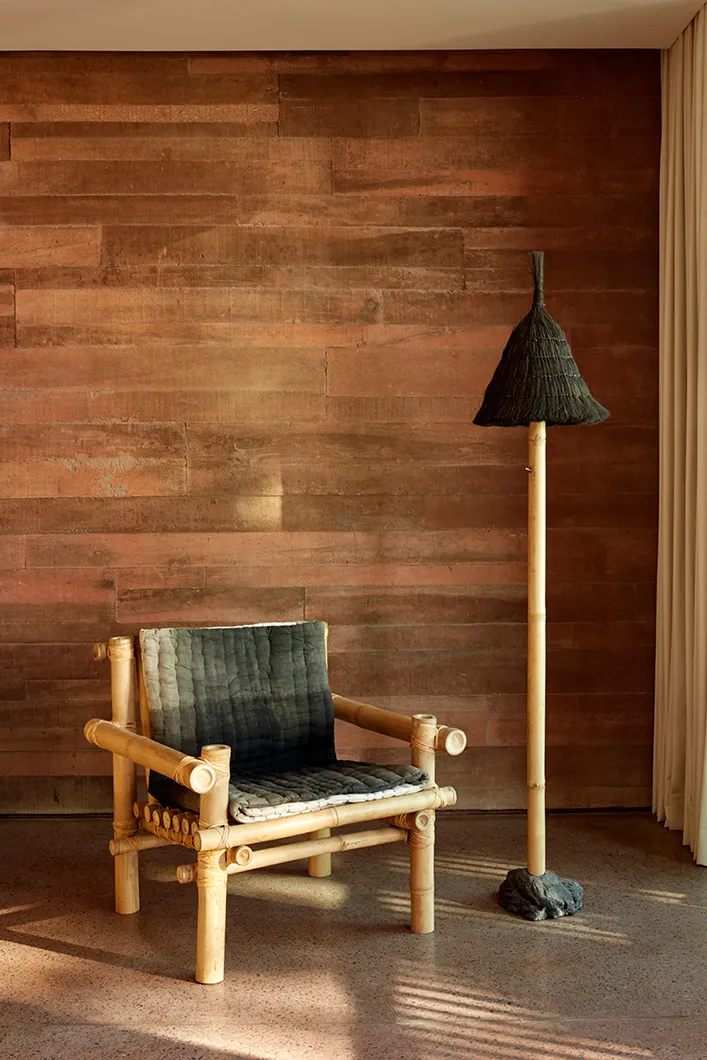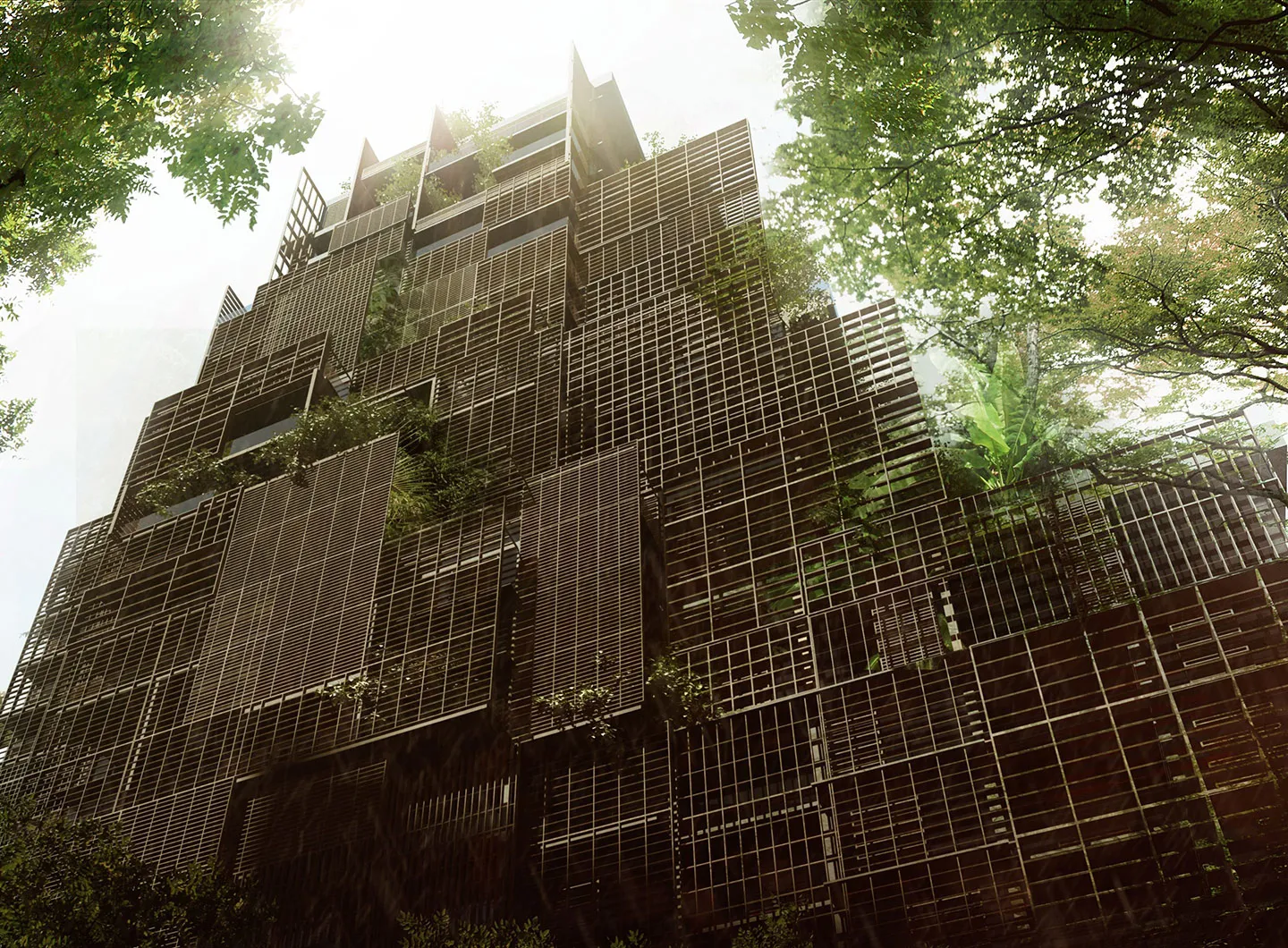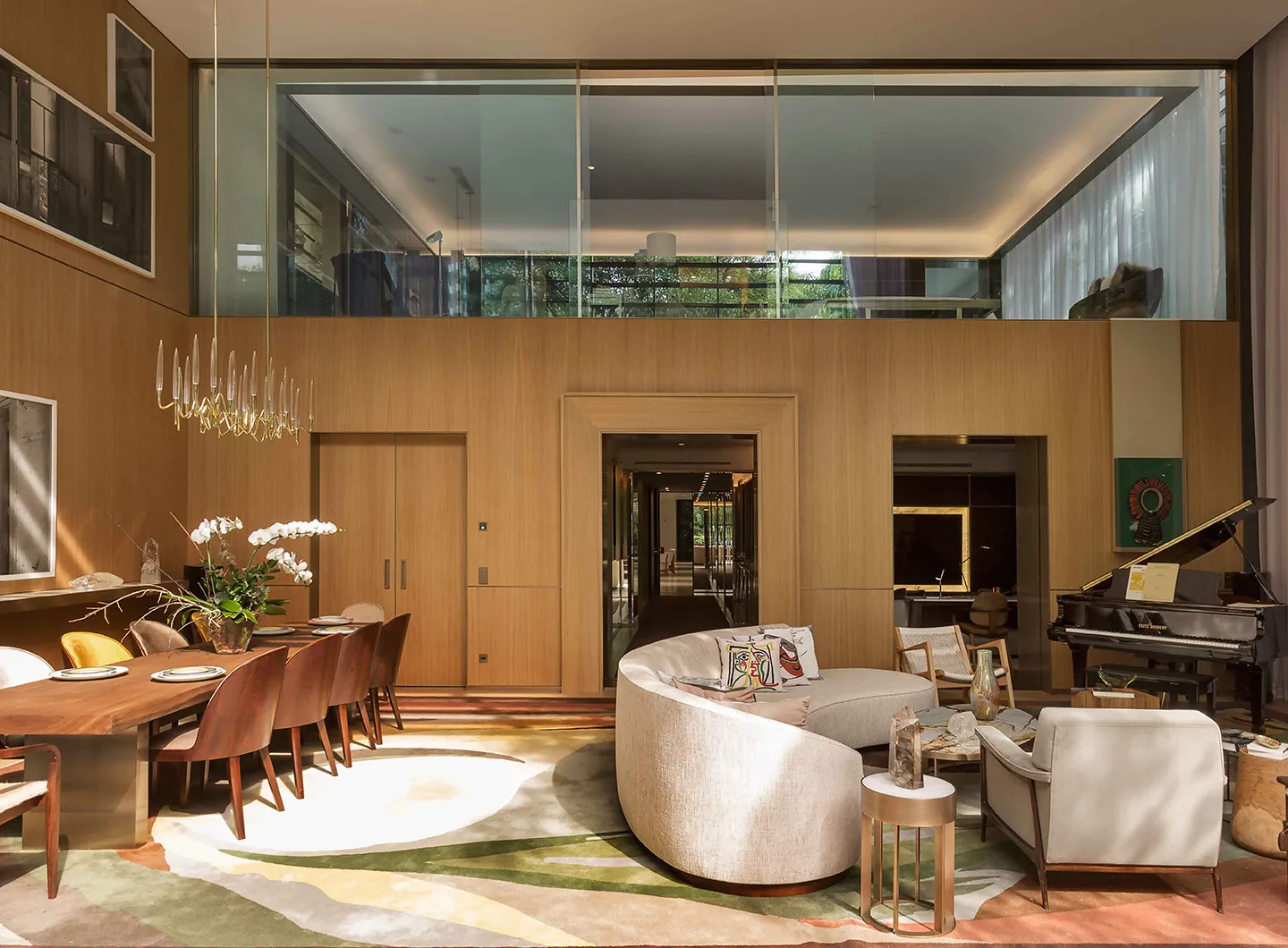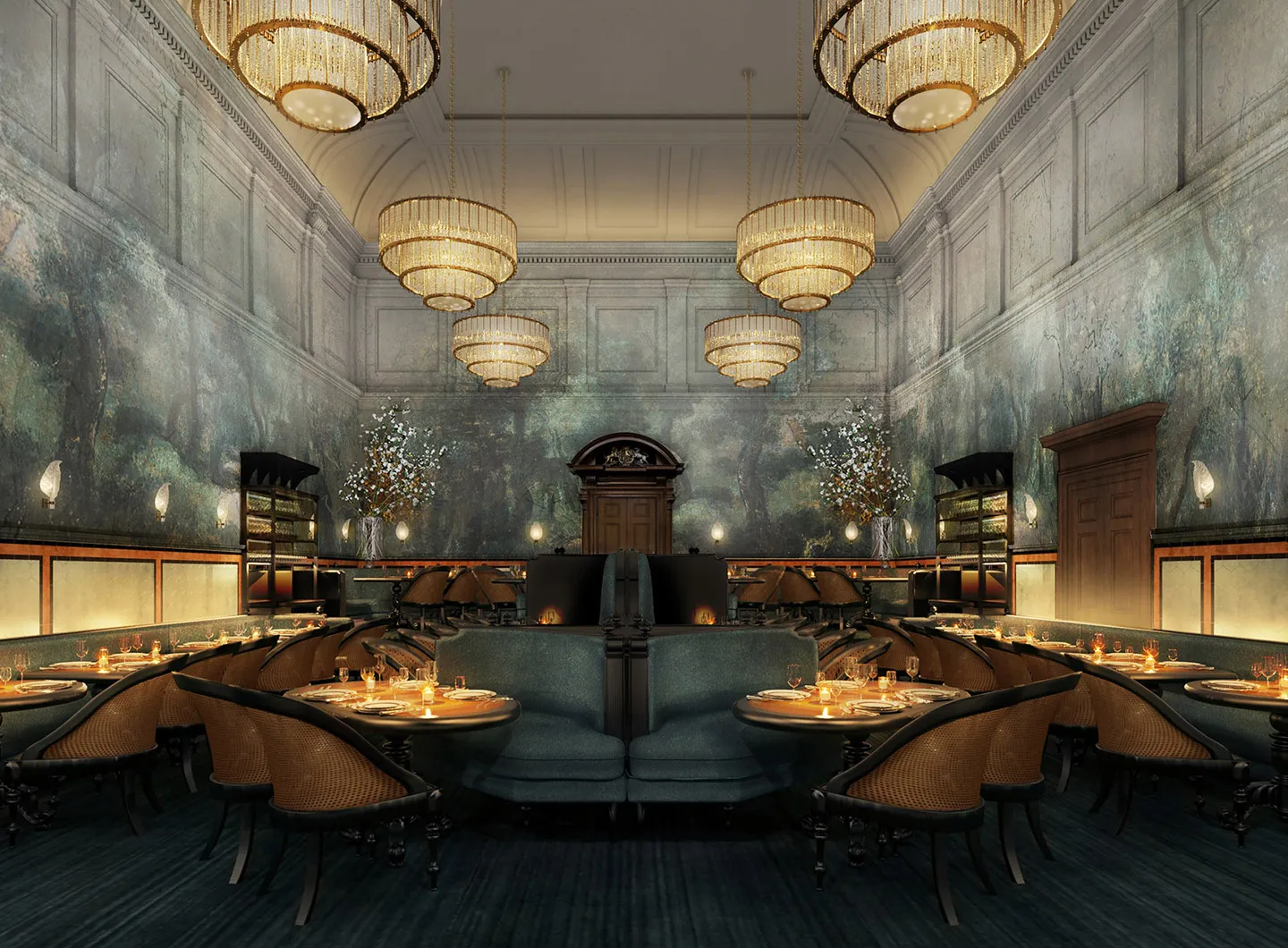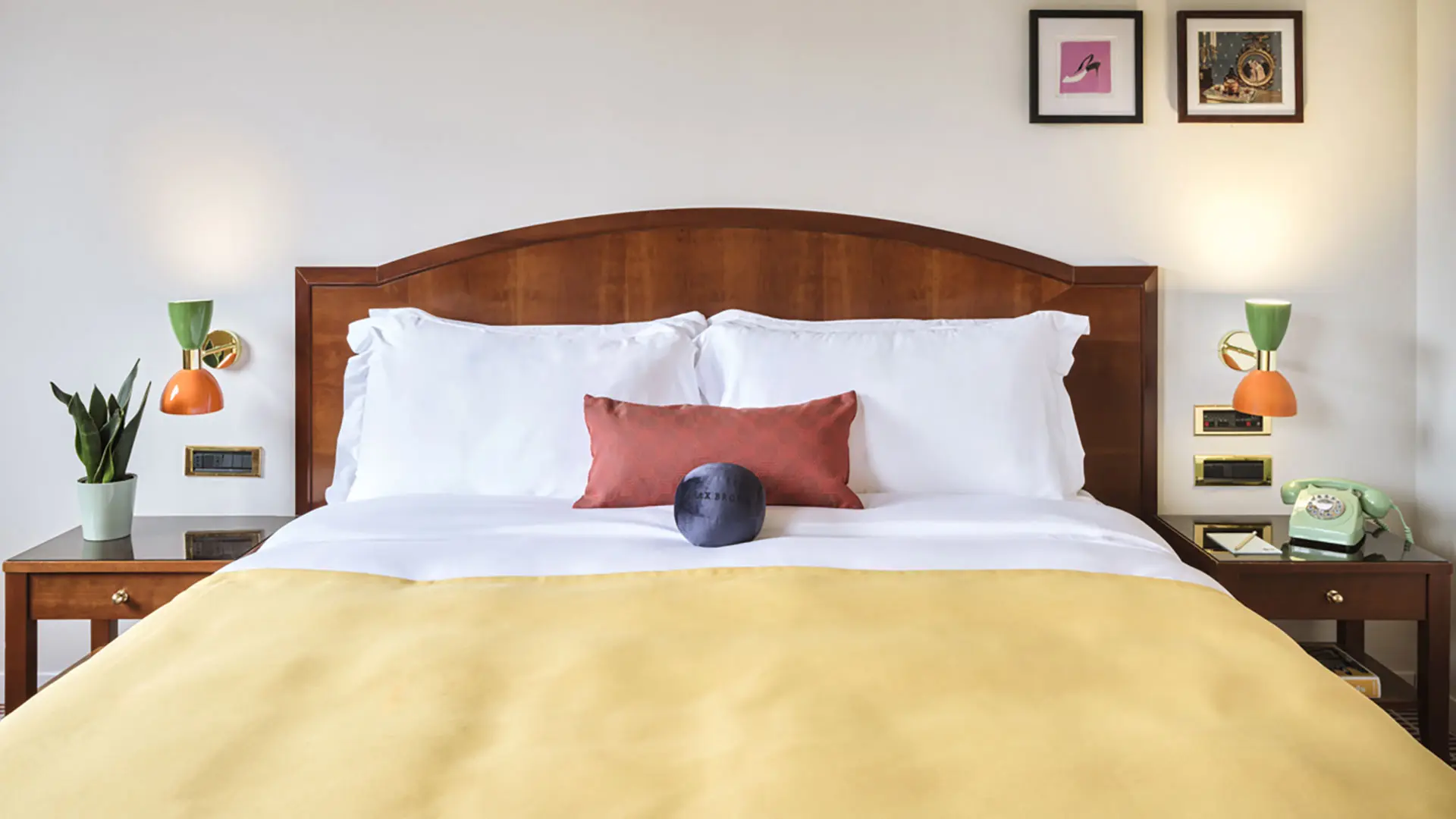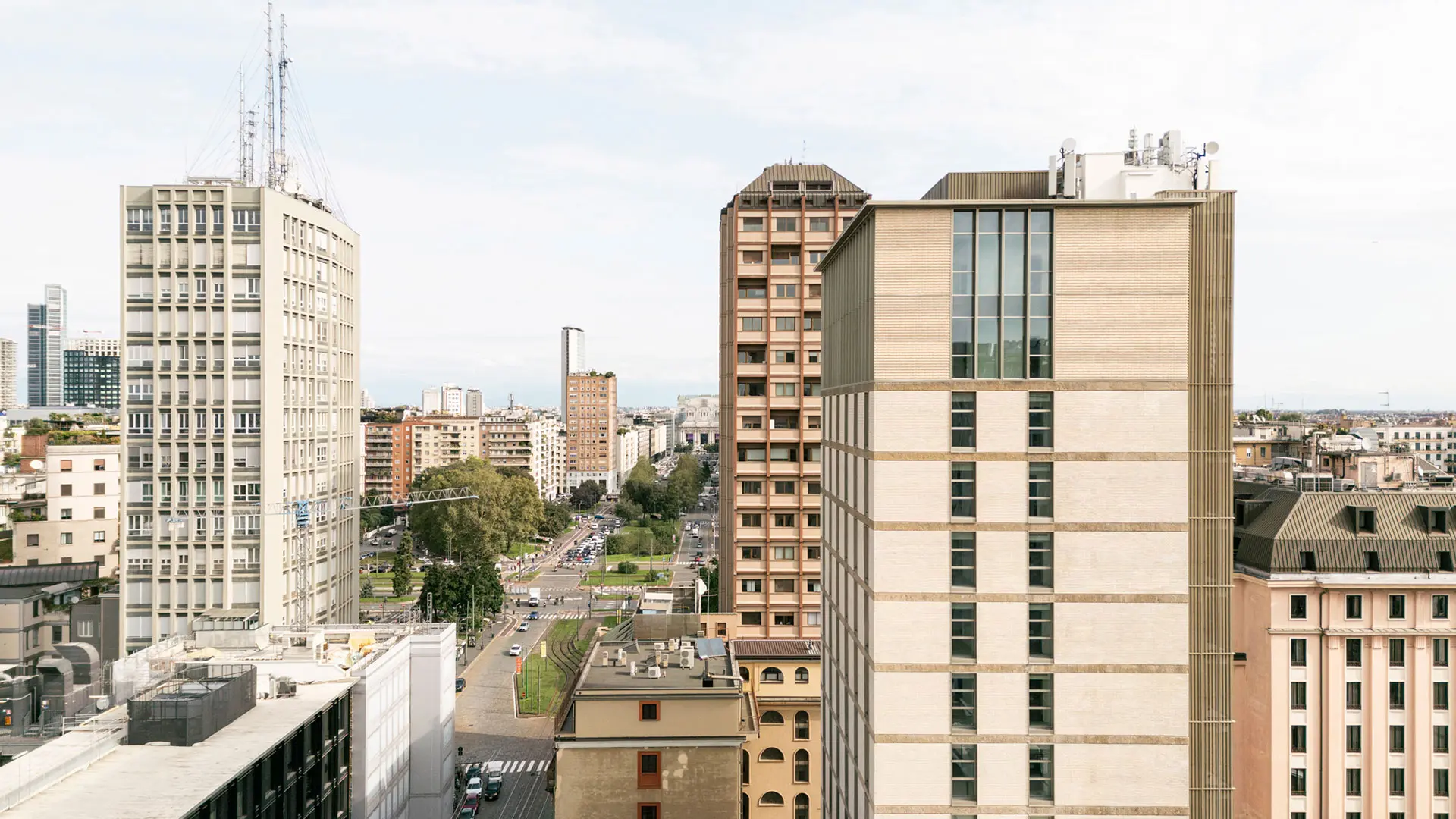In partnership with MiCodmc, a selection of establishments ripe for discovery during the 63rd edition of the Salone del Mobile.Milano, from 8th to 13th April
Emotional and smart sustainability. The hotel of tomorrow is already a reality.
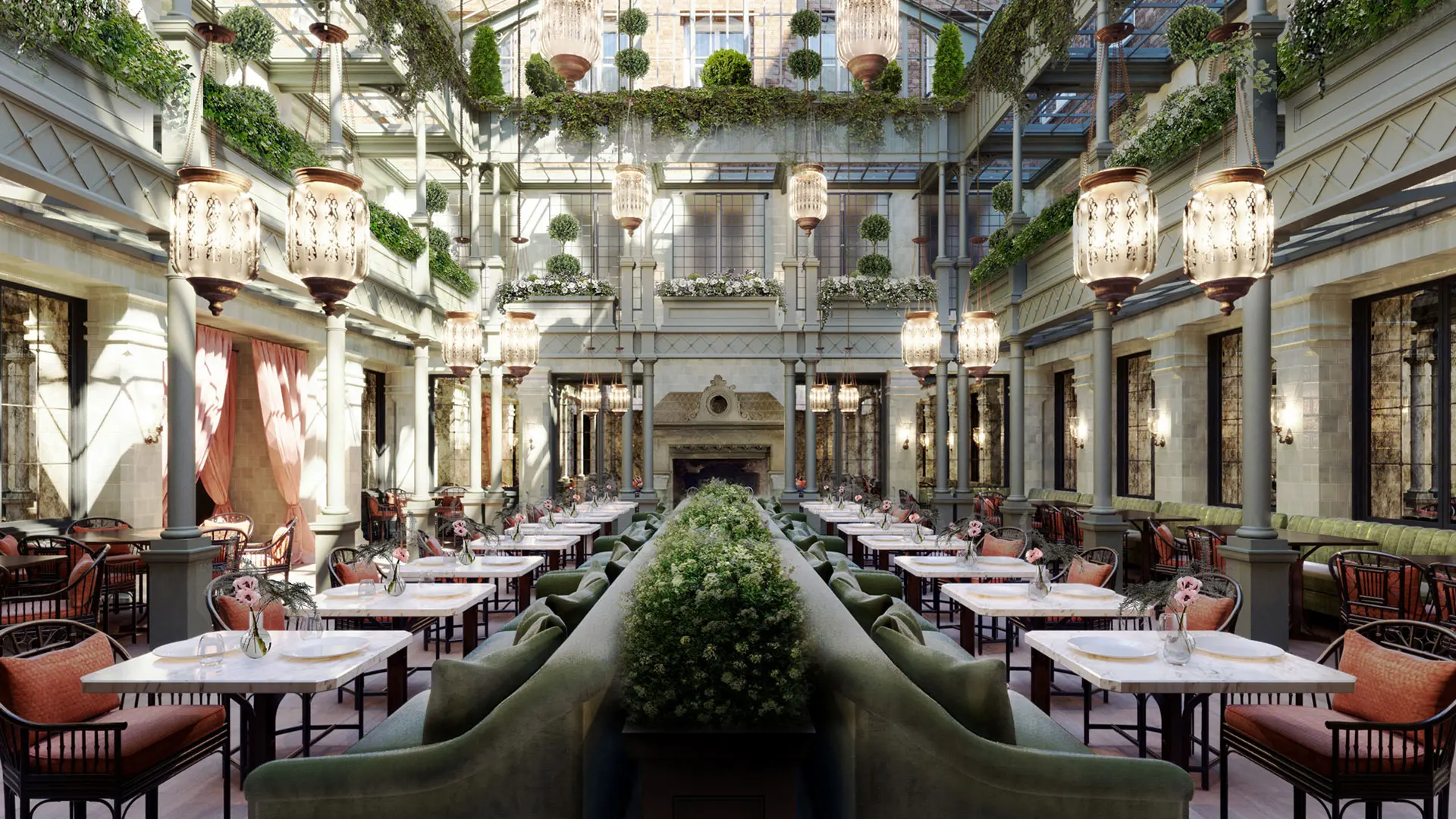
The restaurant at NoMad London, in Covent Garden, is a light-filled space reminiscent of an Edwardian conservatory. © Sydell Group
The climate crisis and evolving consumer tastes are leading to a rethink of hospitality formats. A change is underway in select projects, which are the precursors to new trends
In a study on the traveller of tomorrow carried out with the trend forecasting company The Future Laboratory, the hotel marketing brand Design Hotels outlines a new profile: the "Promadic Traveller", a sort of responsible tourist, a progressive nomad who cares about the fate of the planet. This trans-local and pan-generational traveller is, according to the study, aware of the major global issues (climate change, demographic transformation, over-tourism, gender and ethnic equality, to name but a few) and is conscious of the impact that brands and travel have on environmental and social ecosystems. As a consequence, the values and desires of this emerging category of explorers will have to be taken into account by the hotel industry, with innovations in services, approaches and concepts aimed at them.
Sustainability: the challenge of the future
With the UN setting 2030 as the year by which the effects of climate change must be drastically reduced, sustainability is set to become a major driver of development. In the coming years, companies will be called upon to work together and show their commitment to the environment. A survey by Booking.com on Generation Z consumers in 29 global markets reveals that 77% of them consider the impact of travel on their destinations to be an important factor when deciding where to go, while 81% say they want to stay in green or eco-friendly accommodation. Alongside hotels that are far from the usual circuits of mass tourism, we will therefore see the emergence of high-end eco-resorts – where the notion of high-end is primarily defined by the experience offered – in which nature and architecture blend harmoniously. One example? Svart by Snøhetta, the world's first hotel to produce more energy than it consumes, which will open in 2022 in Norway's Arctic Circle. Designed to attract travellers in search of uncontaminated, extreme nature, the structure, which is inspired by traditional Norwegian architecture, will also feature a farm, an education centre and a design workshop. As Trippin's co-founder Sam Blenkinsopp says, "These experiences have the ability to excite the soul in a way that technology can't."
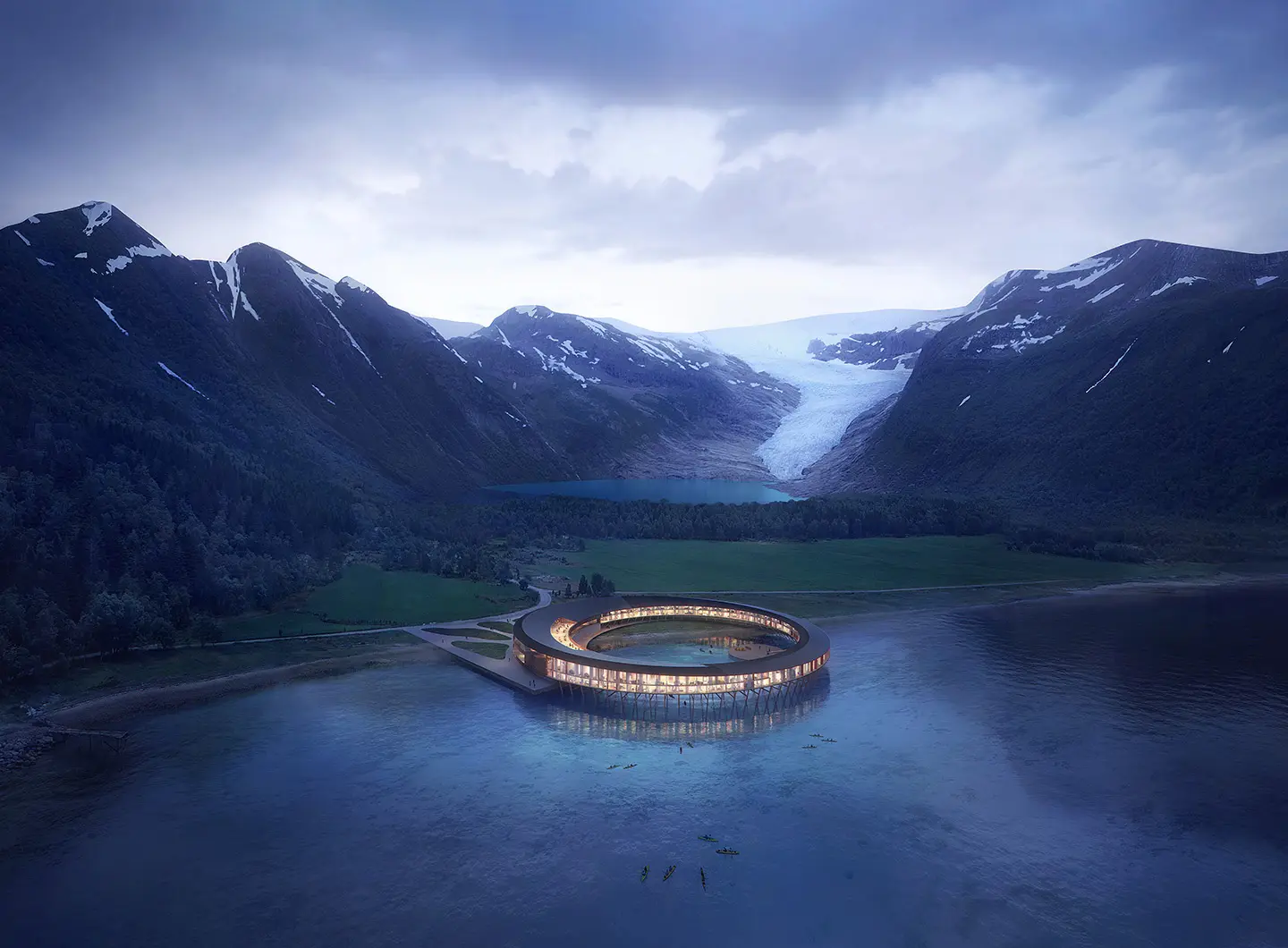
Built on a wooden support structure that extends several metres below the water level, Svart by Snøhetta is the world's first positive impact hotel. © Snøhetta Plompmozes
Towards experiential travel
In Bali, Indonesia, the OMA architectural studio has built Potato Head Studios, a resort which, instead of being exclusive, allows visitors to interact with the locals. Supported by pilotis, the building has an open floor plan where recreational activities, festivals and cultural events are held. Reminiscent of typical Indonesian courtyards, it is made of recycled materials, demonstrating that design can be a vehicle for change. The need for authentic (and indigenous) experiences will guide the choices of tomorrow's traveller, no longer a consumer of resources but a producer of values and culture. As the areas of their lives blur and blend, so will the spaces they seek out, fluid structures where technology and human touch adapt to each other.
Simplicity and the human touch
According to consultancy firm McKinsey & Company, around 15% of the global workforce (400 million people) could be replaced by automation by 2030. Something needs to be pointed out here, however: in addition to being expensive, the technology is quickly becoming obsolete. In a world of automated check-ins and touch-button room service, an offer of emotional intelligence and the human touch will be the standout features of top-of-the-range service. In this context, design will not only be attractive: spaces will be designed to enhance well-being and the quality of the guest’s stay. The renovation of the Gansevoort Meatpacking NYC hotel is heading in this direction. Alongside Mirror, the interactive looking glass for on-demand fitness, each room has a Google Nest Hub for guests to play music, order clean towels, check out and much more. The bespoke (and purchasable) design and the alternating works of well-known and emerging artists mean that visiting the hotel is not a one-time experience.
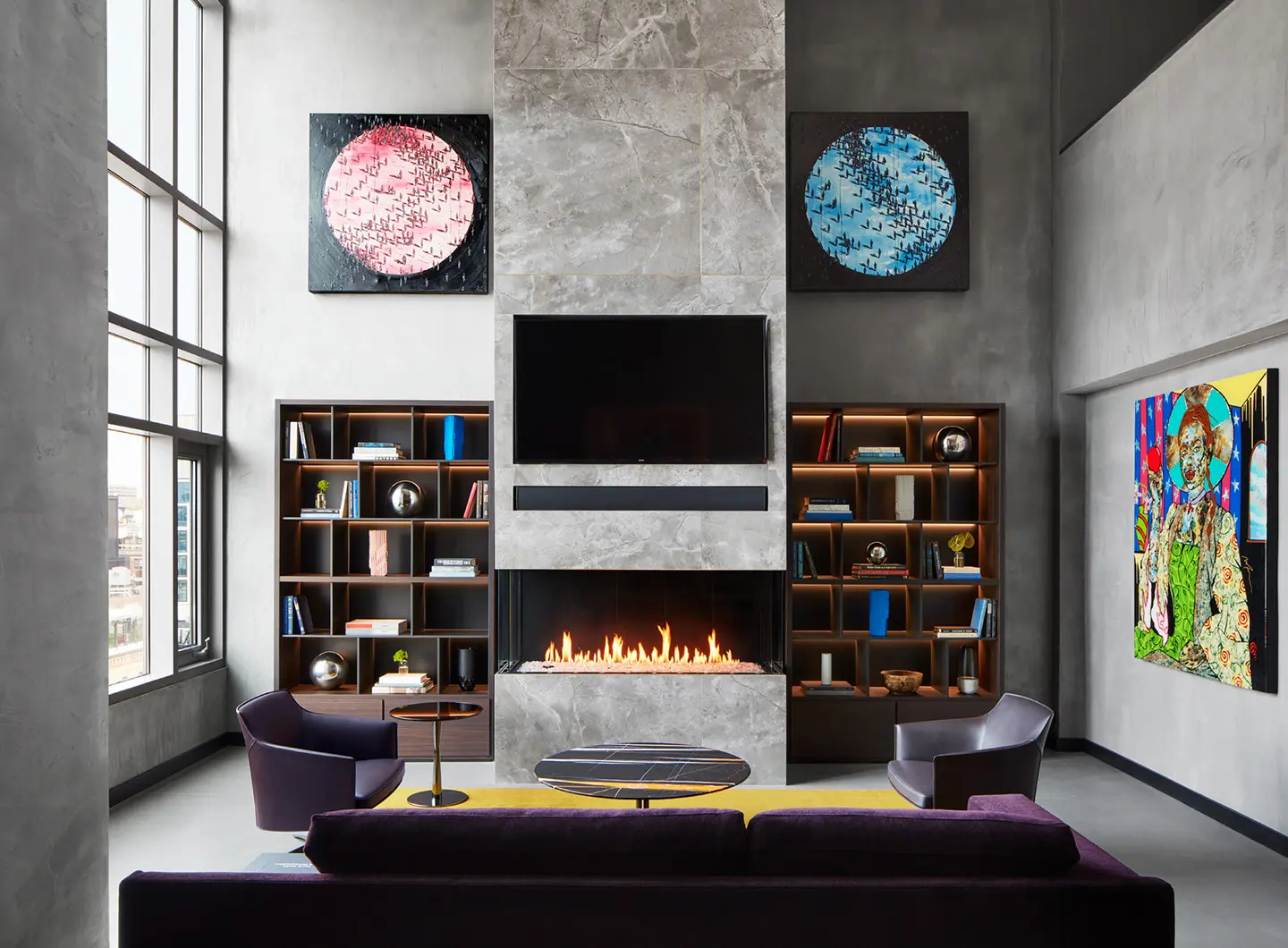
he Penthouse at Gansevoort Meatpacking NYC renovated with furnishings by the brand Poliform. © David Mitchell
New scenarios for communal spaces
In its project The Hotel of Tomorrow, aimed at introducing and testing innovations in the sector, the think tank The Gettys Group Companies puts forward a proposal: converting communal spaces into airy environments that integrate and simulate vegetation, even via digital means. With multiple benefits, ranging from aesthetic pleasure to increased productivity. This biophilic approach is now being adopted by Rosewood São Paulo (with the involvement of Jean Nouvel and Philippe Starck), as well as by NoMad London, which asked Roman and Williams to transform a 19th-century building into a hotel with a romantic, bohemian spirit. "People today want something more intimate, something non-artificial," says Laura Nolte of the hotel group EHPC. "It will be interesting to see who is the first to offer this approach to the clientele."


 Stories
Stories
